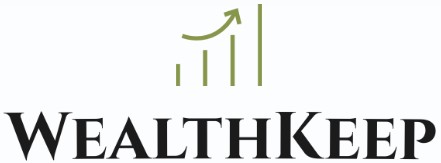It’s a tense and iconic scene.
The lives of four deceptive Chicago real estate salesmen are thrown into chaos when sales manager Blake (Alec Baldwin), the literal angel of death, is sent in by his bosses, Mitch and Murray, to execute a special evening sales meeting, an intervention and final warning for the losers at Premiere Properties. Only Ricky Roma (Al Pacino) is lighting up the sales board because he’s the top closer (or is he?).
The entire meeting consists of the highly offensive Blake unleashing a torrent of abusive epithets and threats if the loser salesmen don’t start closing sales. When the laggards complain the leads are weak, he merely engages in more humiliation, name calling and threats. “The leads are weak? You’re weak!”
Weakness, and one’s innate ability to spot it and profit from it, is a major theme of the story.
The good leads, the Glengarry leads, like the office coffee, he coolly explains, are for closers. “Only one thing counts in this life! Get them to sign on the line which is dotted!” he says, and then follows with the existential credo, “A-B-C. A-Always. B-Be. C-Closing. Always be closing!”
If you’ve ever had a sales job, you have undoubtedly had to endure some ham-handed, second-rate sales manager attempting to fire up the troops by quoting liberally from Baldwin’s scene-stealing oratory in Glengarry Glen Ross, but to address his assertion that you should always be closing, should you?
I maintain that a solid business developer should switch from an A-B-C mindset to an N-B-C mindset: N-B-C.
N-Never. B-Be. C-Closing. Never be closing!
“Wait, how can I get sales if I don’t close?” you may ask.
If you’ve researched your chosen niche, and if you’ve qualified your prospect who resides in the niche, if you ask powerful questions that elicit heartfelt answers about their wants and needs, and if you create small agreements along the way as you travel down the initial path of relationship building, if you did all that correctly, then you will never have to close.
Easy, right?
No.
Deception has no place in coaching.
Manipulation has no place in coaching.
Why is Ricky Roma the top closer at Premiere Properties? Because he isn’t closing at all. Roma is a predator. He sizes up a room and then stalks the weakest mark. Closing techniques.? Leave them for the losers.
Look at what he did with prospect/prey James Lingk (actor Jonathan Pryce).
Roma harnesses the power of his own preternatural instincts to snare his prey, who reveals his weakness, a deep seated inferiority complex. And then Roma pounces so smoothly that Lingk never saw him coming. Roma exploited the man’s insecurities, and got him to sign on the line which is dotted.
Every scene between Roma and Lingk is a masterclass in deception and predatory behavior (and acting). I won’t say anything more about this multi-award-winning David Mamet stage play-turned-film, because I would spoil the joy of seeing it for yourself, and if you haven’t, rent it immediately. 
Like Roma, a great coach understands how to find what makes their clients tick, but in an honest and caring way. She makes it her business to know what gets them out of bed in the morning, what makes them want to repeatedly face the world’s challenges every day. But a strong coach, it should go without saying, is never digging deep just to get a sale.
Deception has no place in coaching. Manipulation has no place in coaching.
Genuinely wanting to help someone get to a better place is the only goal of establishing a professional coaching relationship. Money coaching is a world where sales manipulations and closing techniques will out your prospective coach as just another charlatan, someone just in it for the money.
So, some tips to my professional coaching colleagues:
Never be closing.
Always be caring.
Always be listening.
Always be asking powerful questions.
Always be the person who can help your client change their future.


 She has problems beyond money, but she’s strong, and brave, and good, so I give her my best advice with due respect, loyalty and love for her and her whole family, because they deserve better.
She has problems beyond money, but she’s strong, and brave, and good, so I give her my best advice with due respect, loyalty and love for her and her whole family, because they deserve better. Many people don’t recognize the warning signs that they should seek help organizing and optimizing their financial life. Others may be so embarrassed by their financial situation that they avoid seeking the help that can get their life turned around.
Many people don’t recognize the warning signs that they should seek help organizing and optimizing their financial life. Others may be so embarrassed by their financial situation that they avoid seeking the help that can get their life turned around.

